You are using an out of date browser. It may not display this or other websites correctly.
You should upgrade or use an alternative browser.
You should upgrade or use an alternative browser.
China's SCS Strategy Thread
- Thread starter lilzz
- Start date
Amphibious dock landing ship Changbaishan (Hull 989) and Jing'gangshan (Hull 999), along with 3 Landing Craft Air Cushions (LCAC), attached to a landing ship flotilla with the South China Sea Fleet under the Chinese People’s Liberation Army (PLA) Navy, steam in waters off the Xisha Islands during the maritime coordinative training from March 6 to 11, 2019. The training subjects included the LCACs' in and out of the mother ship, formation movement, ship-borne helicopter take-off and landing, and replenishment-at-sea. (eng.chinamil.com.cn/Photo by Liu Jian)
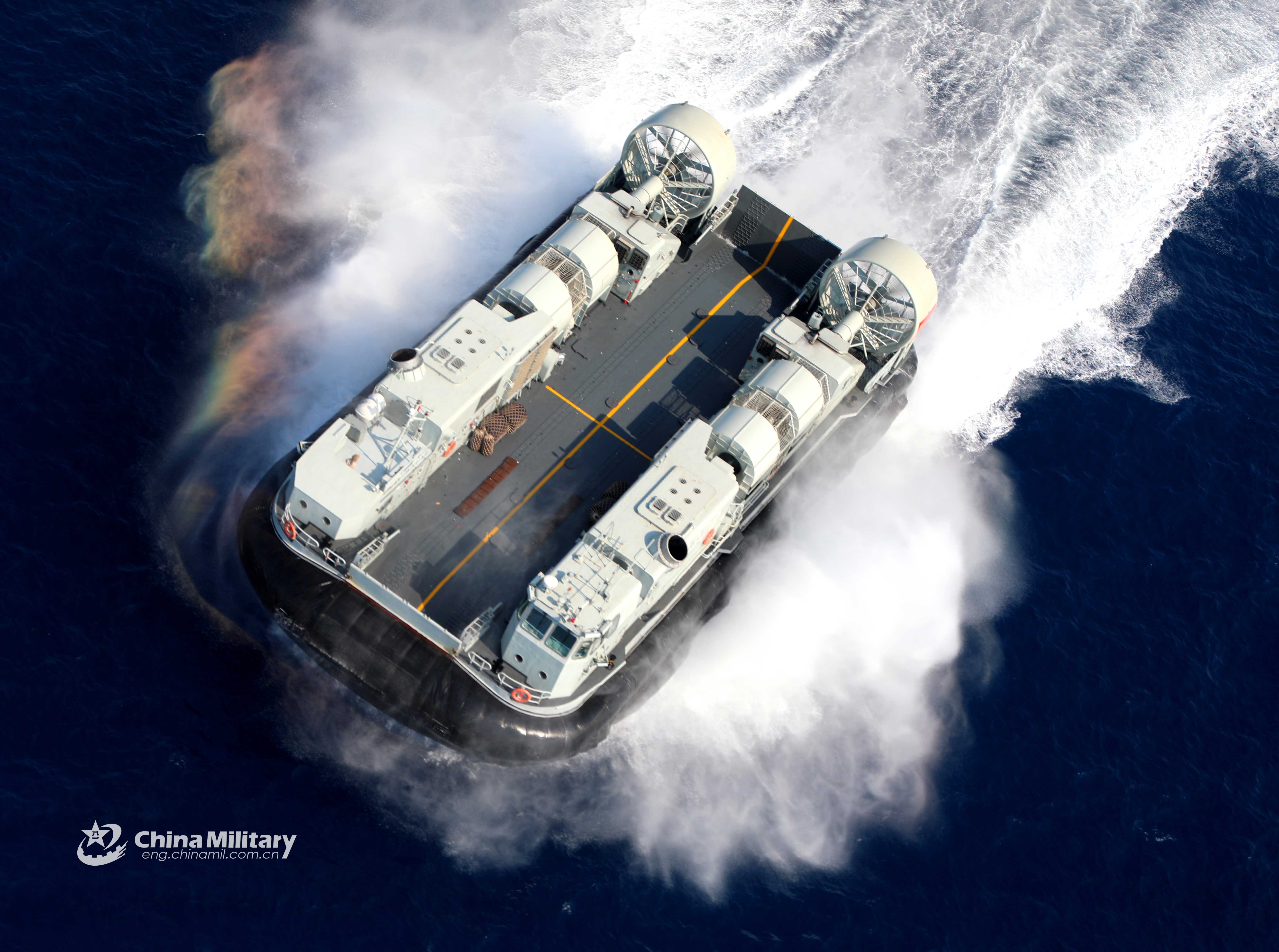
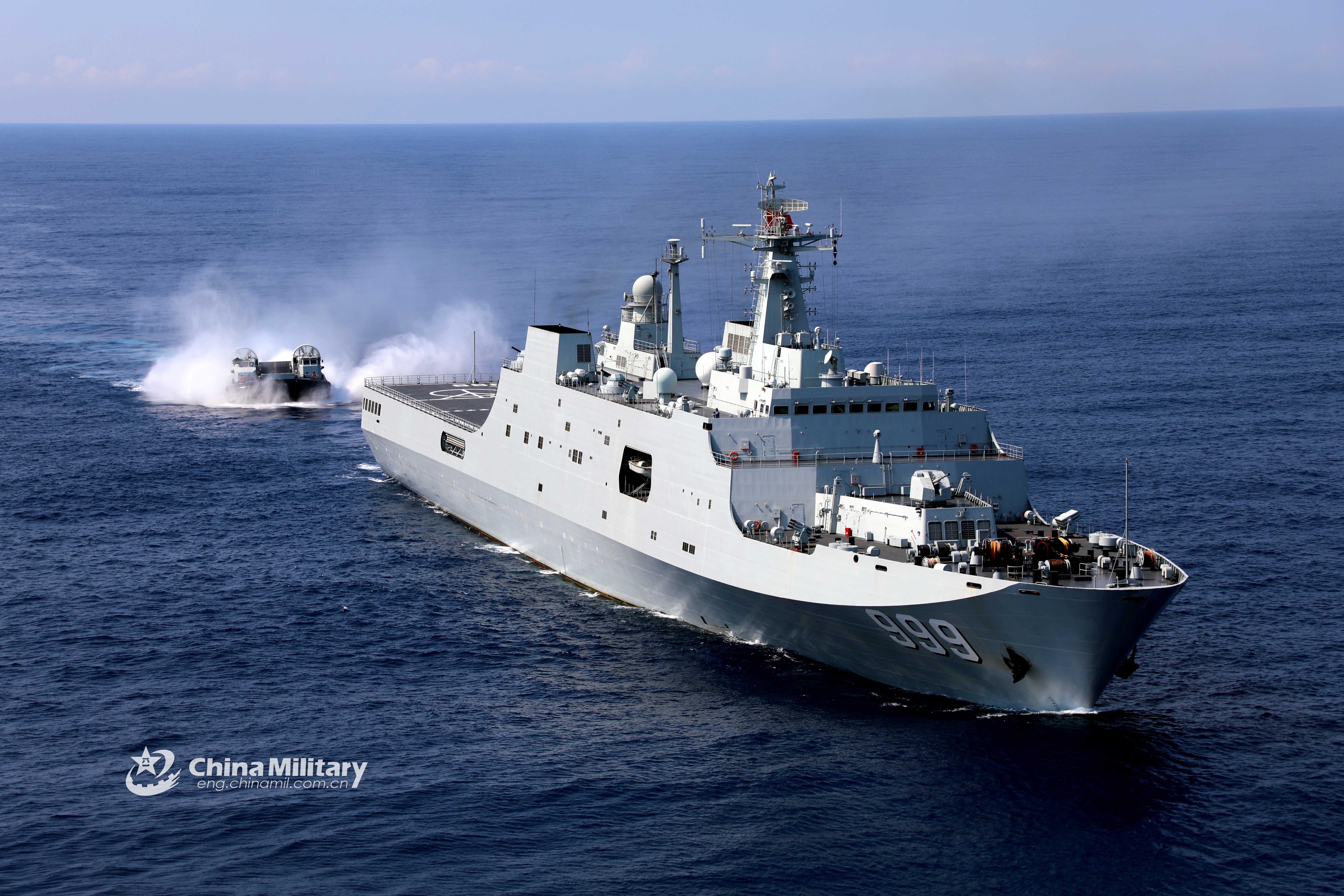
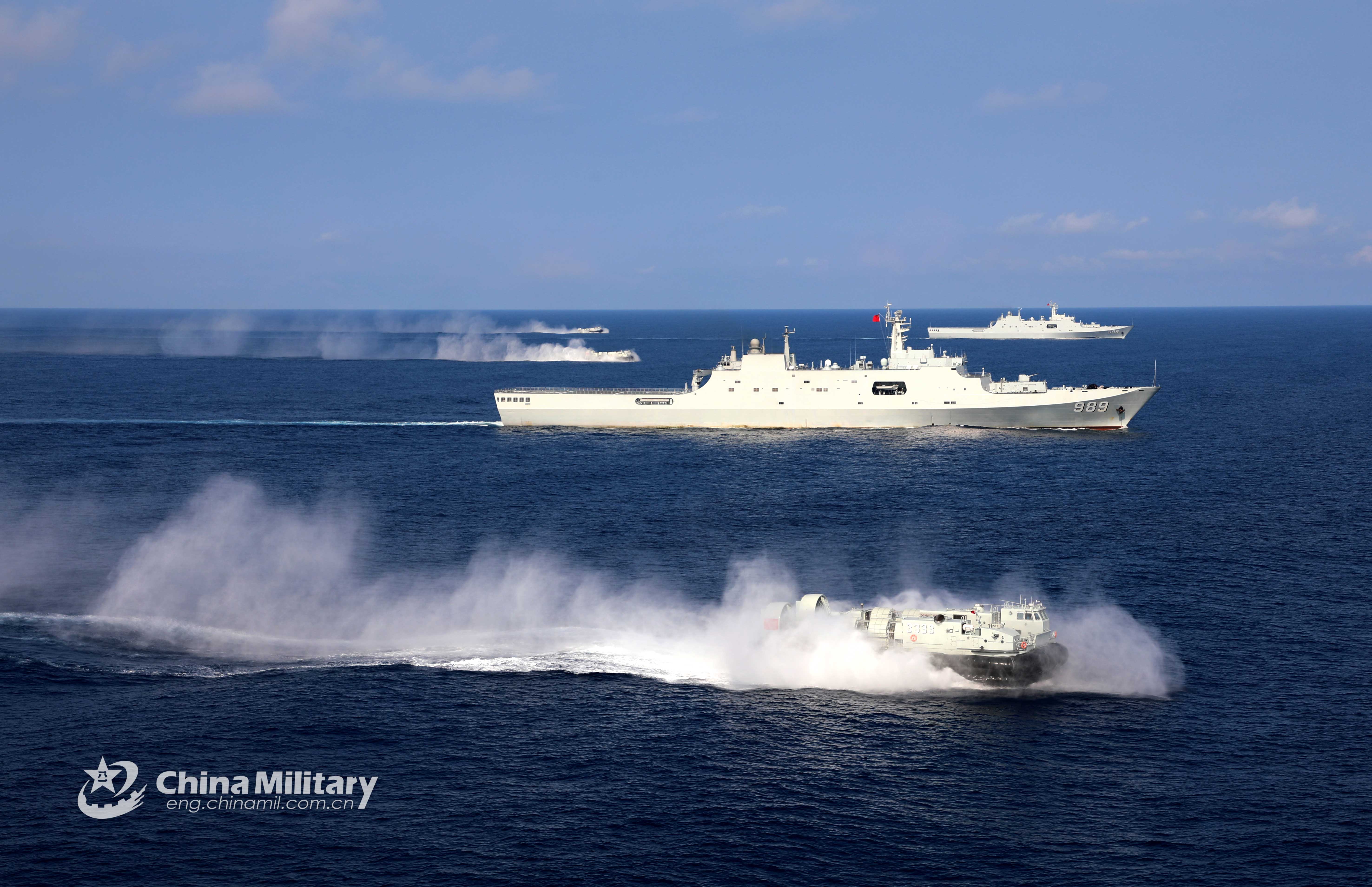
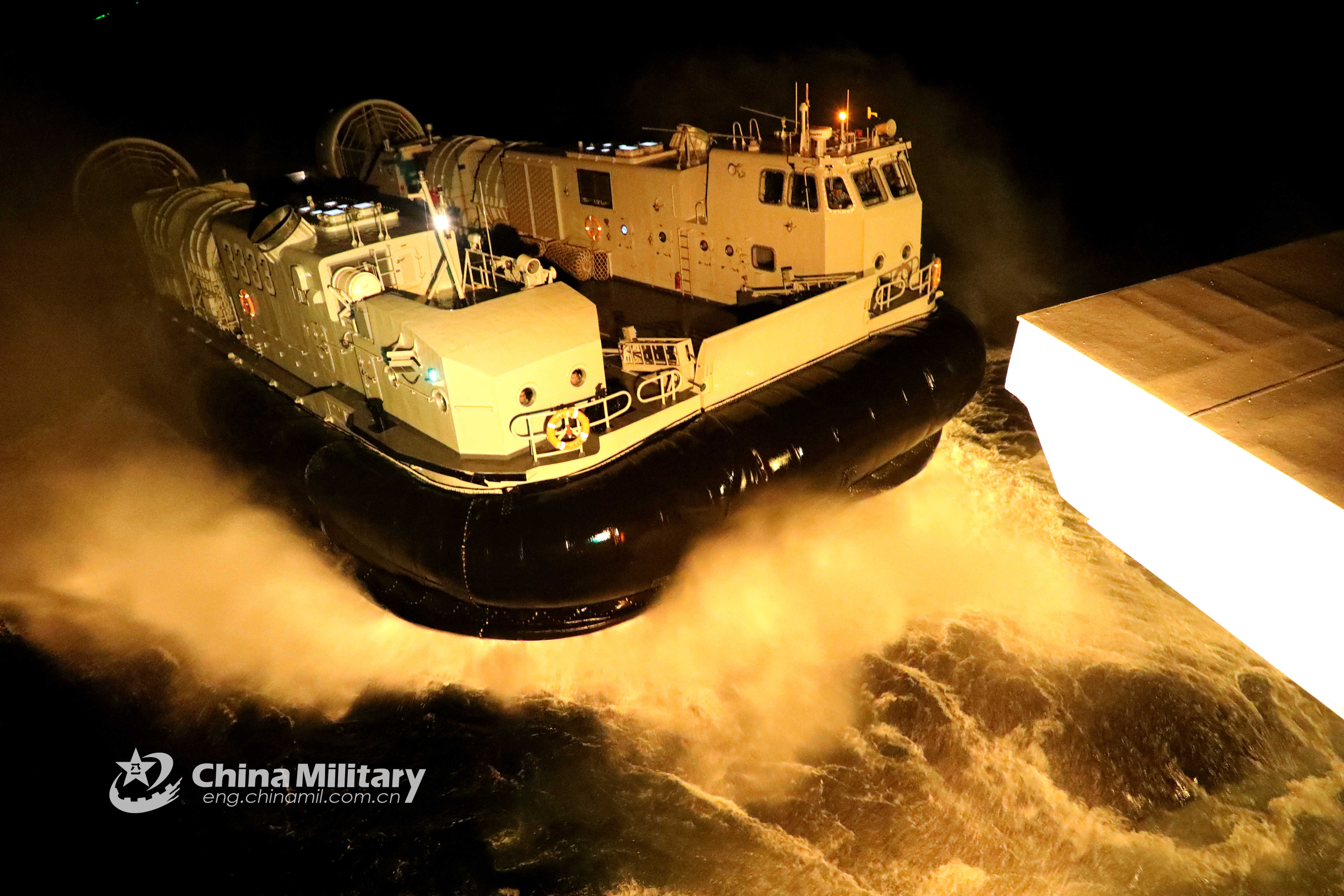




Last edited:
Hendrik_2000
Lieutenant General
Interesting the MSM accused China not following international rule when even the arbitration court is not part of UN it is private body masquerading as international body
No here we have ICJ that is part of UN and their ruling is for Britain to return the Chagos Island also known as Diego Garcia back to Mauritius But Britain refuse to follow the ruling assisted by the US
America’s Golden Opportunity to Demonstrate Its Support for ‘International Order ‘
Will U.S. support for international law extend to respecting an ICJ ruling that jeopardizes an important naval base?
By Mark J. Valencia
March 12, 2019
The struggle between China and the United States for dominance in the South China Sea has raised fundamental questions regarding the “international order” — the body of rules, norms, and institutions that govern relations between nations. These increasingly important questions include what the international order is, who is abiding by it, and who is not. Some say the United States only supports those parts of the international order that further its interests. But now Washington has a golden opportunity to demonstrate its support for the international order even when it may not be in its short-term interest to do so. Its decision will be watched carefully by China and others.
The United States claims to uphold what it deems to be the international order and often calls out and unilaterally punishes those countries who do not abide by its interpretation thereof. Indeed, Washington says that in the South China Sea in particular, China is violating and trying to revise the international order through its claims and actions — including rejection of an international arbitration decision against Beijing. Yet the United States’ own general record of supporting international law and regimes is spotty. It refused to abide by an International Court of Justice (ICJ) decision against it in a . It withdrew from the Paris climate accords and the Iran nuclear deal. And it often appears to violate the UN Charter by threatening and even using force to achieve its international political objectives.
The opportunity at hand involves an for Mauritius against Britain regarding ownership of the , which is home to a US military base. Diego Garcia is an atoll just south of the equator in the central Indian Ocean. It is the largest of 60 small islands comprising the Chagos Archipelago. Between 1968 and 1973, the indigenous population was forcibly removed by the U. K. and the United States through intimidation and denial of return to any who left the island. The U.K. then leased the atoll to the United States, which built a large naval and air force base that became fully operational in 1986. Its strategic value has been proven repeatedly. It provided an during the Iraqi invasion of Kuwait, Operation Desert Fox, Operation Enduring Freedom, Operation Iraqi Freedom and allegedly for CIA renditions. The atoll continues to play a key role in America’s military strategy regarding the Indian Ocean and its environs – including as a base for bomber training missions over the South China Sea.
The ICJ, in a majority opinion, said the decolonization of Mauritius “was not lawfully complete” when it attained independence because Britain retained control over the Chagos Archipelago. The opinion, which is advisory and thus nonbinding, was rendered by a majority of 12 of the 13 judges. It concluded that Britain “is under an obligation to bring to an end its administration of the Chagos Archipelago as rapidly as possible.” The sole dissenter was the American judge. (The U.K. did not have a judge on the court at the time.)
The court produced the opinion at the request of a resolution approved by the UN General Assembly (UNGA). The June 23, 2017 resolution making the request was supported by 94 countries but vehemently opposed by Britain and the United States. Britain maintained that the dispute was a bilateral matter between it and Mauritius and indicated it would reject any ICJ decision against it. This is similar to China’s position regarding the international arbitration brought against it by the Philippines. In that case, China argued that the matter should be negotiated between it and the Philippines. Beijing refused to participate in the hearings and when the decision went against it, China declared that it would neither recognize nor abide by the binding decision. The United States severely criticized that stance and alleged that it was a prime example of China’s revisionist tendencies regarding existing international law and order.(incident
So what will be the U.S. policy going forward regarding the Chagos case?
Although the U.S. base is not in immediate danger, its future is uncertain. If the advisory opinion is implemented, the United States will have a new landlord that might not only raise the “rent” but also enact new restrictions on the use of its territory. Moreover reparations for the forced removal of the original inhabitants of Diego Garcia and their right to return could become issues.
The advisory opinion will now be debated by the UNGA. If the U.K. persists in ignoring the nonbinding ICJ advisory opinion, the United States will be tempted to support its ally. It may well argue — as Britain most likely will — that the decision is not binding and therefore does not have to be followed. In other words, the United States could remain more or less true to form and only support international law and order when in its current interest. It might even try to bully or bribe Mauritius into continuing to allow the base to support its hegemony in Asia.
However, Washington could also seize the opportunity by supporting the ICJ decision against Britain even though it is not in its short-term interest to do so. So the question becomes: will the United States make its policy consistent with its stated principles regarding the upholding of the international order? Or will it continue its disingenuous policy of “do what I say, not what I do”?
Mark J. Valencia is an Adjunct Senior Scholar at the National Institute for South China Sea Studies, Haikou, China.
= dplpw.count.max" class="ng-binding">You have reached th
No here we have ICJ that is part of UN and their ruling is for Britain to return the Chagos Island also known as Diego Garcia back to Mauritius But Britain refuse to follow the ruling assisted by the US
America’s Golden Opportunity to Demonstrate Its Support for ‘International Order ‘
Will U.S. support for international law extend to respecting an ICJ ruling that jeopardizes an important naval base?
By Mark J. Valencia
March 12, 2019
The struggle between China and the United States for dominance in the South China Sea has raised fundamental questions regarding the “international order” — the body of rules, norms, and institutions that govern relations between nations. These increasingly important questions include what the international order is, who is abiding by it, and who is not. Some say the United States only supports those parts of the international order that further its interests. But now Washington has a golden opportunity to demonstrate its support for the international order even when it may not be in its short-term interest to do so. Its decision will be watched carefully by China and others.
The United States claims to uphold what it deems to be the international order and often calls out and unilaterally punishes those countries who do not abide by its interpretation thereof. Indeed, Washington says that in the South China Sea in particular, China is violating and trying to revise the international order through its claims and actions — including rejection of an international arbitration decision against Beijing. Yet the United States’ own general record of supporting international law and regimes is spotty. It refused to abide by an International Court of Justice (ICJ) decision against it in a . It withdrew from the Paris climate accords and the Iran nuclear deal. And it often appears to violate the UN Charter by threatening and even using force to achieve its international political objectives.
The opportunity at hand involves an for Mauritius against Britain regarding ownership of the , which is home to a US military base. Diego Garcia is an atoll just south of the equator in the central Indian Ocean. It is the largest of 60 small islands comprising the Chagos Archipelago. Between 1968 and 1973, the indigenous population was forcibly removed by the U. K. and the United States through intimidation and denial of return to any who left the island. The U.K. then leased the atoll to the United States, which built a large naval and air force base that became fully operational in 1986. Its strategic value has been proven repeatedly. It provided an during the Iraqi invasion of Kuwait, Operation Desert Fox, Operation Enduring Freedom, Operation Iraqi Freedom and allegedly for CIA renditions. The atoll continues to play a key role in America’s military strategy regarding the Indian Ocean and its environs – including as a base for bomber training missions over the South China Sea.
The ICJ, in a majority opinion, said the decolonization of Mauritius “was not lawfully complete” when it attained independence because Britain retained control over the Chagos Archipelago. The opinion, which is advisory and thus nonbinding, was rendered by a majority of 12 of the 13 judges. It concluded that Britain “is under an obligation to bring to an end its administration of the Chagos Archipelago as rapidly as possible.” The sole dissenter was the American judge. (The U.K. did not have a judge on the court at the time.)
The court produced the opinion at the request of a resolution approved by the UN General Assembly (UNGA). The June 23, 2017 resolution making the request was supported by 94 countries but vehemently opposed by Britain and the United States. Britain maintained that the dispute was a bilateral matter between it and Mauritius and indicated it would reject any ICJ decision against it. This is similar to China’s position regarding the international arbitration brought against it by the Philippines. In that case, China argued that the matter should be negotiated between it and the Philippines. Beijing refused to participate in the hearings and when the decision went against it, China declared that it would neither recognize nor abide by the binding decision. The United States severely criticized that stance and alleged that it was a prime example of China’s revisionist tendencies regarding existing international law and order.(incident
So what will be the U.S. policy going forward regarding the Chagos case?
Although the U.S. base is not in immediate danger, its future is uncertain. If the advisory opinion is implemented, the United States will have a new landlord that might not only raise the “rent” but also enact new restrictions on the use of its territory. Moreover reparations for the forced removal of the original inhabitants of Diego Garcia and their right to return could become issues.
The advisory opinion will now be debated by the UNGA. If the U.K. persists in ignoring the nonbinding ICJ advisory opinion, the United States will be tempted to support its ally. It may well argue — as Britain most likely will — that the decision is not binding and therefore does not have to be followed. In other words, the United States could remain more or less true to form and only support international law and order when in its current interest. It might even try to bully or bribe Mauritius into continuing to allow the base to support its hegemony in Asia.
However, Washington could also seize the opportunity by supporting the ICJ decision against Britain even though it is not in its short-term interest to do so. So the question becomes: will the United States make its policy consistent with its stated principles regarding the upholding of the international order? Or will it continue its disingenuous policy of “do what I say, not what I do”?
Mark J. Valencia is an Adjunct Senior Scholar at the National Institute for South China Sea Studies, Haikou, China.
= dplpw.count.max" class="ng-binding">You have reached th
antiterror13
Brigadier
There is zero chance the US will follow the ICJ ruling for Diego Garcia ...... everybody would have to follow as long as it doesn't have any impact to the US interest 
Is there a Chinese countermeasure to this potential new change in the U.S. war of war? Example: U.S. dis-aggregating its forces and supply chains to avoid being susceptible to large scale missile bombardment. There are more examples but this is just the first one that comes to mind.
Robert Work, David Ochmanek, and Chris Dougherty host a panel discussion on why the U.S. military needs to change how it fights to meet the challenge of great-power competition as described in the 2018 National Defense Strategy. Susanna V. Blume moderates.
About A New American Way of War
The 2018 National Defense Strategy (NDS) declared that the central problem facing the U.S. military was an erosion of its advantage against China and Russia. While not entirely novel—previous work inside and outside the Department of Defense (DoD) had cited this issue—it was the first official DoD document to declare it central to our overarching strategy.
This project begins with the hypothesis that the military challenges posed by China and Russia demand a fundamental re-thinking of how the United States fights wars. This is more than technologies or specific concepts of operation, it is a new overarching concept for how the U.S. military will achieve the nation’s political goals in the most stressing scenarios.
By focusing on the question of how—i.e., the ways—this project will illuminate feasible ends and inform the means necessary to achieve them. It will shape a future military strategy to win the 21st century competitions with China and Russia, while also meeting U.S. responsibilities elsewhere in an affordable and sustainable manner.
Robert Work, David Ochmanek, and Chris Dougherty host a panel discussion on why the U.S. military needs to change how it fights to meet the challenge of great-power competition as described in the 2018 National Defense Strategy. Susanna V. Blume moderates.
About A New American Way of War
The 2018 National Defense Strategy (NDS) declared that the central problem facing the U.S. military was an erosion of its advantage against China and Russia. While not entirely novel—previous work inside and outside the Department of Defense (DoD) had cited this issue—it was the first official DoD document to declare it central to our overarching strategy.
This project begins with the hypothesis that the military challenges posed by China and Russia demand a fundamental re-thinking of how the United States fights wars. This is more than technologies or specific concepts of operation, it is a new overarching concept for how the U.S. military will achieve the nation’s political goals in the most stressing scenarios.
By focusing on the question of how—i.e., the ways—this project will illuminate feasible ends and inform the means necessary to achieve them. It will shape a future military strategy to win the 21st century competitions with China and Russia, while also meeting U.S. responsibilities elsewhere in an affordable and sustainable manner.
Hendrik_2000
Lieutenant General
Via Taishang another step to assert Chinese sovereignty in SCS
CNOOC to build energy networks in S.China Sea, help increase supply to Greater Bay Area
Source:Global Times Published: 2019/3/14
CNOOC will build energy networks in South China Sea, help increase supplies
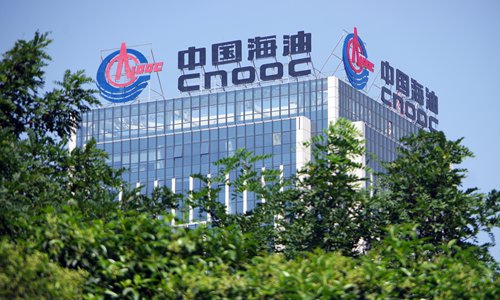
Photo: VCG
China National Offshore Oil Corp (CNOOC) will support the development of the Guangdong-Hong Kong-Macao Greater Bay Area by building two energy transmission networks consisting of a series of large natural gas and oil fields in the South China Sea.
The move will enhance China's energy security and help guarantee supplies, a Chinese analyst said Thursday.
It is expected that the networks will improve energy transmission for the Guangdong-Hong Kong-Macao Greater Bay Area, according to a statement by the State-owned Assets Supervision and Administration Commission of the State Council on Wednesday.
According to the statement, CNOOC has designated the South China Sea as the main field for oil and gas exploration and development, and it has formulated a strategy for deep-water exploration.
It plans to build a series of deep-water oil fields in the eastern part of the South China Sea in the next few years. It will also develop the first 100-billion-cubic-meter deep-water gas field in the western part of the South China Sea.
The statement noted that CNOOC has built two gas fields with an annual production capacity of 10 million tons in the western and eastern waters of the South China Sea. Since 2014, it has discovered the first group of deep-water gas fields in China, including Lingshui 17-2.
As of the end of 2018, CNOOC had 70 oil and gas fields in the South China Sea with cumulative oil production of more than 330 million tons and gas exceeding 130 billion cubic meters (bcm).
Lin Boqiang, a professor at Xiamen University in East China's Fujian Province, told the Global Times on Thursday that exploring energy resources in the South China Sea will enhance energy security in China, particularly in Guangdong, Hong Kong and Macao, which will get first priority in using those resources.
CNOOC has supplied up to 18.2 bcm of natural gas to Guangdong, Hong Kong and Macao, accounting for more than 70 percent of the total natural gas consumption in the region.
Lin said China's energy supply is very dependent on imports amid an unstable international political situation, so the government is aiming to improve energy security by increasing domestic energy supplies.
"The more oil and gas China produces itself, the more secure its energy supply will be," Lin said.
On Thursday, Hong Kong-listed CNOOC shares rose 3.47 percent to HK$13.72 ($1.75).
CNOOC to build energy networks in S.China Sea, help increase supply to Greater Bay Area
Source:Global Times Published: 2019/3/14
CNOOC will build energy networks in South China Sea, help increase supplies

Photo: VCG
China National Offshore Oil Corp (CNOOC) will support the development of the Guangdong-Hong Kong-Macao Greater Bay Area by building two energy transmission networks consisting of a series of large natural gas and oil fields in the South China Sea.
The move will enhance China's energy security and help guarantee supplies, a Chinese analyst said Thursday.
It is expected that the networks will improve energy transmission for the Guangdong-Hong Kong-Macao Greater Bay Area, according to a statement by the State-owned Assets Supervision and Administration Commission of the State Council on Wednesday.
According to the statement, CNOOC has designated the South China Sea as the main field for oil and gas exploration and development, and it has formulated a strategy for deep-water exploration.
It plans to build a series of deep-water oil fields in the eastern part of the South China Sea in the next few years. It will also develop the first 100-billion-cubic-meter deep-water gas field in the western part of the South China Sea.
The statement noted that CNOOC has built two gas fields with an annual production capacity of 10 million tons in the western and eastern waters of the South China Sea. Since 2014, it has discovered the first group of deep-water gas fields in China, including Lingshui 17-2.
As of the end of 2018, CNOOC had 70 oil and gas fields in the South China Sea with cumulative oil production of more than 330 million tons and gas exceeding 130 billion cubic meters (bcm).
Lin Boqiang, a professor at Xiamen University in East China's Fujian Province, told the Global Times on Thursday that exploring energy resources in the South China Sea will enhance energy security in China, particularly in Guangdong, Hong Kong and Macao, which will get first priority in using those resources.
CNOOC has supplied up to 18.2 bcm of natural gas to Guangdong, Hong Kong and Macao, accounting for more than 70 percent of the total natural gas consumption in the region.
Lin said China's energy supply is very dependent on imports amid an unstable international political situation, so the government is aiming to improve energy security by increasing domestic energy supplies.
"The more oil and gas China produces itself, the more secure its energy supply will be," Lin said.
On Thursday, Hong Kong-listed CNOOC shares rose 3.47 percent to HK$13.72 ($1.75).
Ultra
Junior Member
There is zero chance the US will follow the ICJ ruling for Diego Garcia ...... everybody would have to follow as long as it doesn't have any impact to the US interest
Like I said. VILE, EVIL, HYPOCRITES.
BUNCH OF COMPLETELY MORALLY BANKRUPT BULLIES who felt entitled to dictate moral judgements to the rest of the world but not itself.
If US wishes to be a true leader, it needs to grow up. It needs to do the right thing. It needs to be responsible.
Not "I will do however I like and the rest of the world be damned, oh and if you step out of line that I drew arbitrarily I will bully you".
Ultra
Junior Member
Is there a Chinese countermeasure to this potential new change in the U.S. war of war? Example: U.S. dis-aggregating its forces and supply chains to avoid being susceptible to large scale missile bombardment. There are more examples but this is just the first one that comes to mind.
This reminds me of Go game (weiqi) a lot.
The thing about it is that US plays a good game so far. It has a good "Moyo" right now if you look at all the bases dotted around the world. But a moyo is just a moyo. Its not territory and can be defeated. The more they play the "diversification" game the more they play right into China's hand. They will simply find themselve spreading thin and vulnerable.
In another decade or two, China can make it clear that any attack on the SCS claims and further BS with Taiwan constitutes an attack on the achinese mainland.
Unless the US insists on attacking sooner. Which doesn’t seem impossible after witnessing the rise hate crimes around the world against colored folks. China Hawks know it’s an existential crisis.
Unless the US insists on attacking sooner. Which doesn’t seem impossible after witnessing the rise hate crimes around the world against colored folks. China Hawks know it’s an existential crisis.
There is zero chance the US will follow the ICJ ruling for Diego Garcia ...... everybody would have to follow as long as it doesn't have any impact to the US interest
The difference between an ICJ ruling and the private court the Philippines hired on the SCS case is day and night.
ICJ has international recognition, UN backing and jurisdiction. The PCA is only a private court with no affiliation with UN organs which is for settling disputes with BOTH partners agreeing to use it. Moreover, it’s rulings are not binding like ICJ and only for supplementing policy decisions.
The fact that China was not present or agreed to use PCA means that it is unable to produce a ruling with legal worth, let alone binding authority.
US and China both are bound by international law to fulfil ICJ’s rulings.
